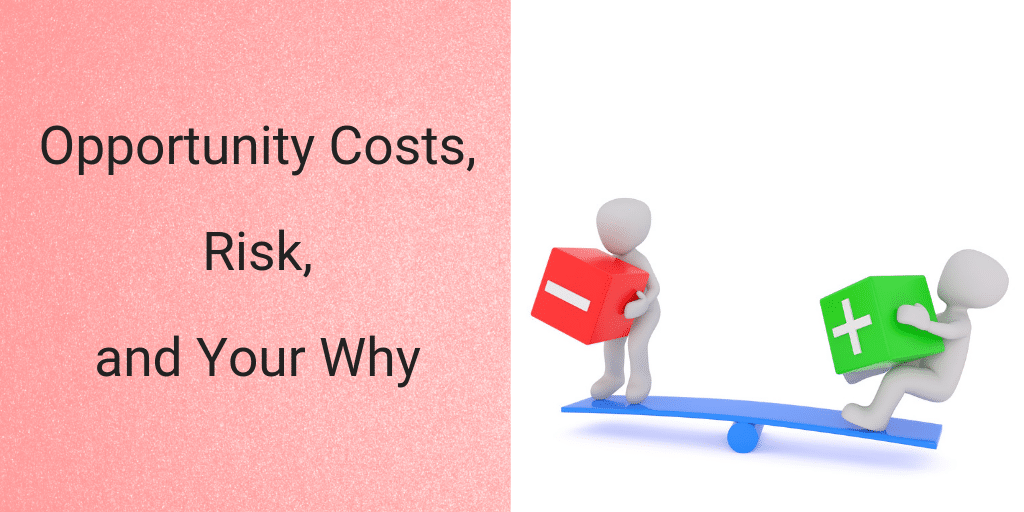![]()
As we define it, risk is the factor you consider in deciding where you are on a continuum between danger (loss) and opportunity (gain). When you know your WHY you know the reason behind taking risks in your business. You can confidently lead your team, making decisions that move into the future you’ve envisioned.
The risks you take are related to the strategies you utilize to reach your business goals. You are aware of the cost of your decisions, both financial and in other opportunities not taken. Opportunity costs are the opportunities you determine are not the optimum way of achieving your goals in this place and time. You choose the best opportunity to reach your goals, rather than any other method or means.
As a business owner and a leader, every decision you make involves opportunity costs. There is always another way to accomplish a goal you set out to accomplish. In choosing one option, you run the risk that another option may be faster or easier. This is an example of opportunity cost.
However, in making your decision, you’ve weighed the risk of each option and chosen the best option at this point in time, based on your understanding as the leader. Understanding the risk of each option is the role of due diligence. We’ll address due diligence next week.
For example, I focus on working with business owners and those leading in small companies and ministries. I weighed the opportunity cost of working with business leaders in large corporations; the opportunity cost in this decision was choosing not to work with leaders of large corporations. I decided the best match for me was business owners and those leading in small companies and ministries. While there is an opportunity cost in not focusing on leaders of large businesses, I choose to work with those with whom I’m a better fit.
There are great benefits in understanding the relationship between your WHY, your strategic goals and opportunity costs. Awareness of the strategic reasons for choosing one specific option and not choosing others:
- Strengthens your confidence in your plan. It provides resilience in the loss stage, when the risk seems high and gain seems a far off pipedream. Someone with low risk tolerance might pull out at this point, not remembering the upside of the opportunity.
- Provides background for the future. If you find things aren’t working out as you’d expected you can revisit your decision and evaluate the next best opportunity to pursue. Learning from unexpected results provides you with new information, leading to a new definition of the best option. Even failure gives you a deeper understanding of your business and the context where you operate.
How do you measure opportunity costs in your business? What is the relationship between your WHY, opportunity costs, and your business success?

